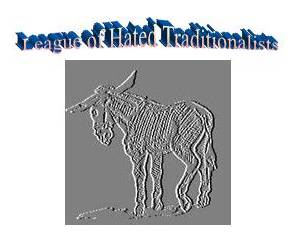 I had thought that Fr. Teilhard de Chardin S.J. had pretty much passed into oblivion, but here comes Fr. Peter Hans Kolvenbach. father general of the Jesuits, who compares Chardin to Fr. Mateo Ricci, who traveled to China and became the court mathematician in Peking. I find the comparison interesting because both of the named Jesuits compromised and adapted their Catholic faith to the environment of the time. Both inculturationists were disciplined by the Church.
I had thought that Fr. Teilhard de Chardin S.J. had pretty much passed into oblivion, but here comes Fr. Peter Hans Kolvenbach. father general of the Jesuits, who compares Chardin to Fr. Mateo Ricci, who traveled to China and became the court mathematician in Peking. I find the comparison interesting because both of the named Jesuits compromised and adapted their Catholic faith to the environment of the time. Both inculturationists were disciplined by the Church.Ricci was a Jesuit missioniary of the late 16th and early 17th centuries who spent the last 27 years of his life living and dressing as a Chinese scholar, and is considered a leading inculturationist who incorporated Chinese religious beliefs into Catholic liturgy. Because the practice of ancestor worship was so deepseated in Chinese society, Ricci allowed the new Chinese Catholics to continue with the ceremonies that honored the dead and Confucius. He also used certain Chinese terms to designate God that were later declared incorrect by Popes.
After much controversy and the passionate defense of Ricci by the Jesuits, the accomodations of Fr. Ricci to Chinese paganism were condemned in 1742 by Pope Benedict XIV in the Bull "Ex quo singulari." The Bull required the missionaries to take an oath that such abuses would not be tolerated in the future. Ceremonies in honour of Confucius or dead ancestors and relatives were said to be tainted with superstition to such a degree that they could not be purified.
In July 1983, the Red Chinese published a laudatory piece on Fr. Mateo Ricci. Seizing on this possible opening of Chinese Communism to Christianity, an International Convention to honor Mateo Ricci was held in in Rome during October 2001. The conference was sponsored by the Pontifical Gregorian University and the Italo-Chinese Institute. In a message to participants, Pope John Paul II called for the normalization of diplomatic relations with Red China. He also apologized to the Chinese for errors and actions that the Church in China had committed in the past. Enuff said!











